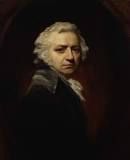The aesthetics of the Gothic.
The nightmare (1781) oil painting by Johann Heinrich Füssli, located in the Detroit institute of arts.
 Johann Heinrich Füssli or Henry Fuseli, was a Swiss painter and writer on art, who worked and spent most of his life in Britain. He showed early in his career a special attraction for fantastic subjects. As a painter, Fuseli favoured the supernatural. The first to excite particular attention was The Nightmare, exhibited in 1782, which became an icon of horror in the eighteenth century.
Johann Heinrich Füssli or Henry Fuseli, was a Swiss painter and writer on art, who worked and spent most of his life in Britain. He showed early in his career a special attraction for fantastic subjects. As a painter, Fuseli favoured the supernatural. The first to excite particular attention was The Nightmare, exhibited in 1782, which became an icon of horror in the eighteenth century.
The nightmare represents dreams and is symbolically portraying the frightening vision of a nightmare. It depicts a sleepy woman, laying on her bed and exposing her long white neck with her hair dangling to the floor. A flask of Laudanum is near her.
The sleeper seems lifeless and an incubus squats on her belly. The term incubus is originally used in a religious context. It is related to a demon male who has sexual relationships with sleeping women. The monster glares at us. His look is nasty, and we are under the impression to have caught him red-handed. To the left, a frightening horse comes out of the gloom and is also visiting the dreams of the woman.
The room is dark and contains many warm color tones. The most prominant of these tones is red. This may be to express an erotic subtext.
There is kind of symmetry in this painting, mainly between the viewer and the incubus who is watching us, but also with the horse who like the viewer is witnessing the scene. This paintwork satisfies the aesthetics of the gothic because the drape through which the horse appears is like a door opening onto another mysterious world. We know that the Gothic explores the borders and the limits between states and worlds.
The "night mare" (mare means "female horse") is a famous word game which combines mare and night as we can see on the paintwork with Fuseli's nightmare. The horse is a psychopomp, traditionally associated with the world of the dead, making the "pun" more significant yet. But etymologically the word nightmare does not refer to the mare.




/https%3A%2F%2Fstorage.canalblog.com%2F59%2F18%2F1089968%2F83511447_o.jpg)